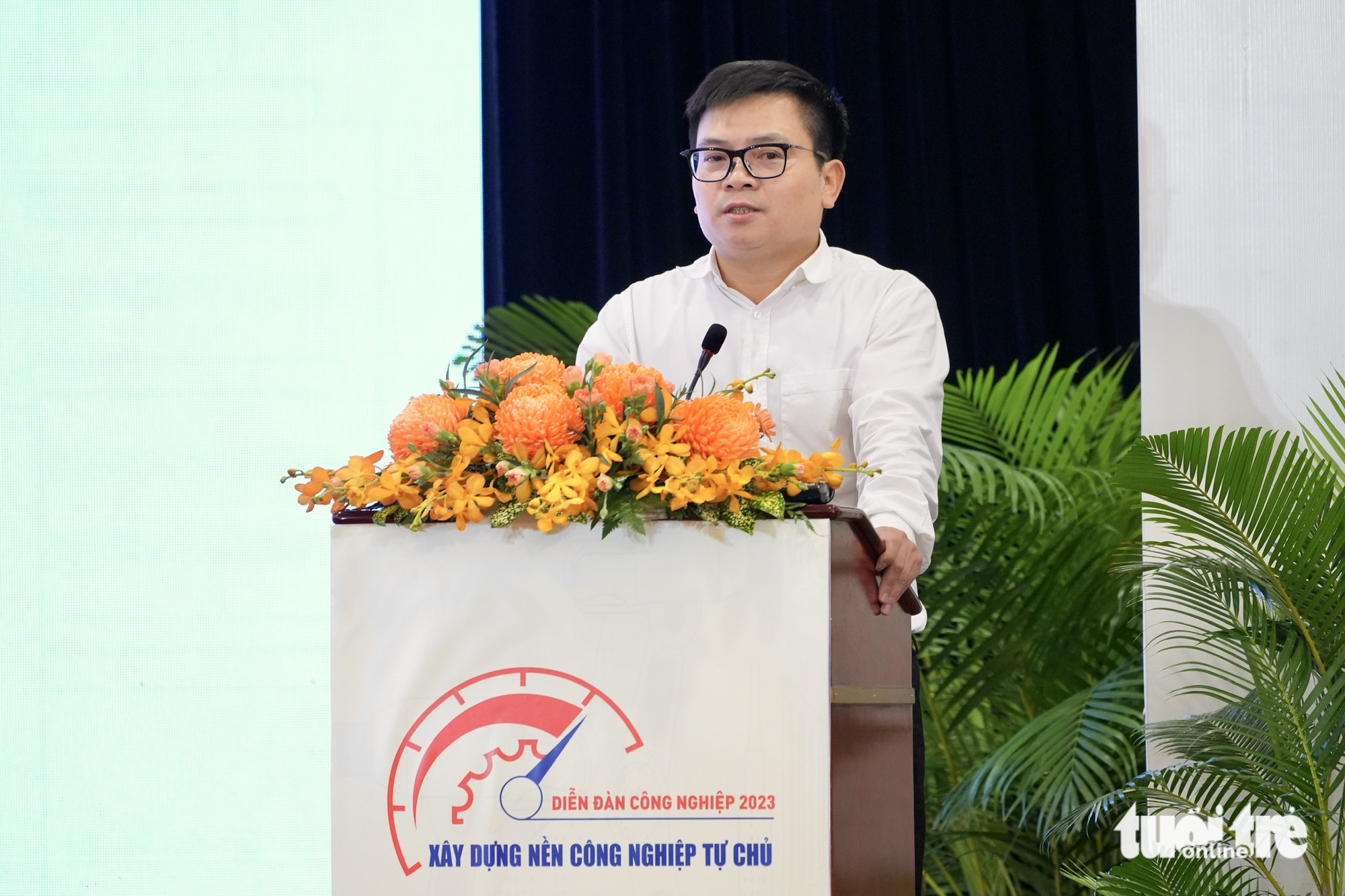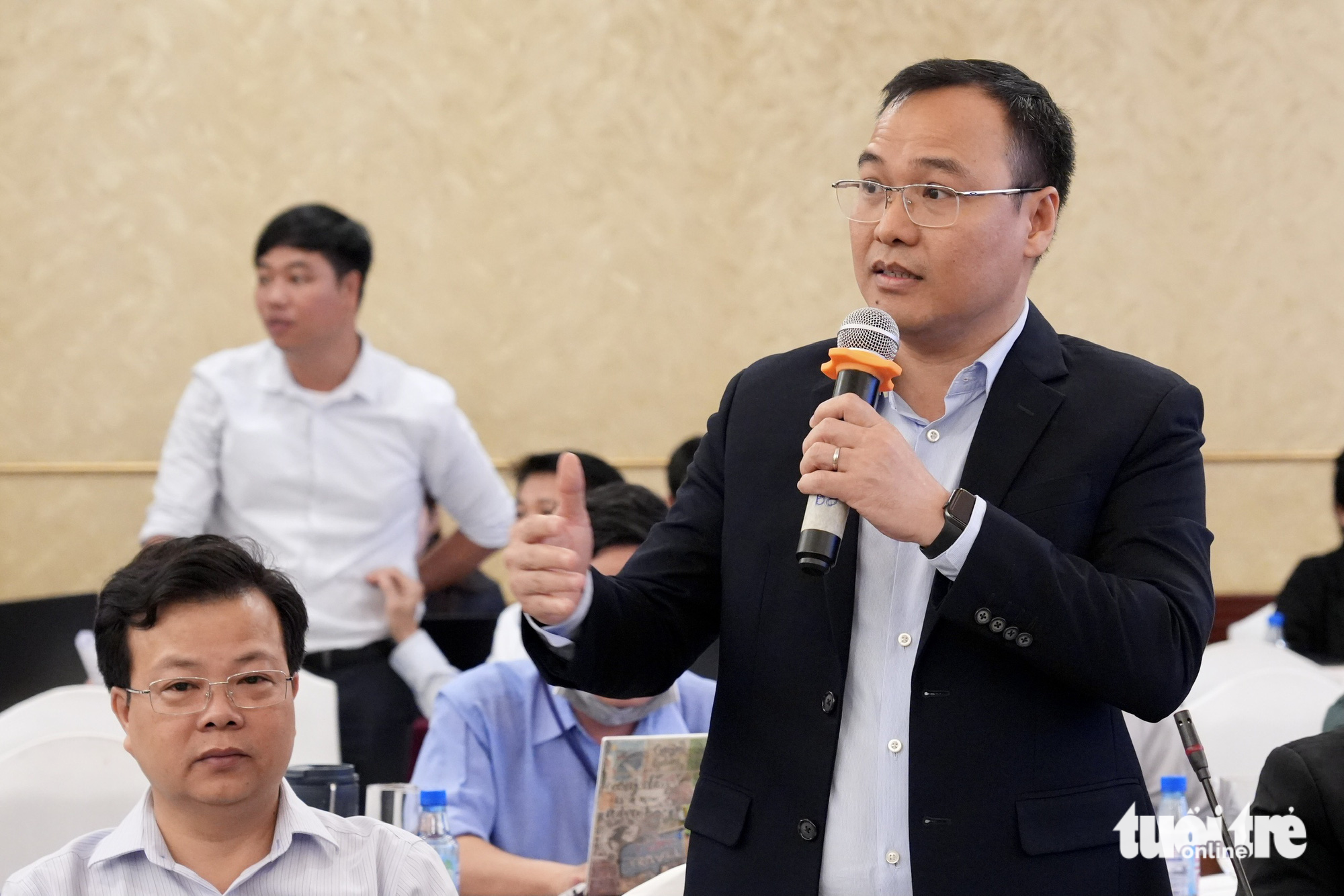Price competition remains a challenge for Vietnamese industrial enterprises in their endeavors to enter the global supply chain, as there are still a lot of inadequacies in tax, fee, and interest policies.
In the open discussion of the seminar on ‘Supporting Small and Medium Enterprises in Joining Global Supply Chains’ held in Ho Chi Minh City on February 28, many businesses stated they lack competitiveness in the supporting industry sector due to the absence of support.
Truong Thanh Hoai, head of the Vietnam Industry Agency under the Ministry of Industry and Trade, said that there would be an industrial law, along with a steering committee on industrialization and modernization.
“Current policies do not yet meet the needs of businesses,” Hoai stated.
“In law-making, we will focus on issues such as tax policies and provision of interest rate compensation, as a high interest rate is not at all favorable for enterprises.”
Hoai also informed about new policies such as creating an industrial ecosystem, providing supporting technology, and developing production to meet global standards.
He expressed his hope that associations in the industry will further promote their roles as well as contribute to the development of tax, interest rate, and banking policies in order to support industry.
Do Phuoc Tong, chairman of the Ho Chi Minh City Association of Mechanical and Electrical Enterprises (HAMEE), pointed out the current issues of tax policies, with many raw materials still taxed.
The import tax on raw equipment is zero percent, but the import tax on raw materials can reach up to 20 percent, Tong elaborated.
To participate in the global supply chain, businesses need good policy support aside from their efforts, he continued, adding that HAMEE is building a program on how to reduce production costs and boost competitiveness.
|
|
| Ho Quynh Hung, chairman of Dien Quang Lamp JSC, speaks at the seminar in Ho Chi Minh City, February 28, 2023. Photo: Huu Hanh / Tuoi Tre |
Nguyen Van Tri, director of Lap Phuc Company, specializing in manufacturing high-tech molds, said that the Ho Chi Minh City stimulus fund has enabled his firm to import high-end equipment from Japan and Switzerland and build modern factories.
However, Lap Phuc has to ensure that its products are cheaper than Chinese ones but better in quality in order to receive more orders, Tri stated.
One of the major problems that the firm is facing is a high import tax rate, he continued, adding that a reasonable tax policy will help promote the machine manufacturing industry and allow businesses to access cheap machinery for production.
Expressing a similar opinion, Ho Quynh Hung, chairman of Dien Quang Lamp JSC, said that taxes on some electronic components are discouraging production.
Components for circuit assembly and manufacturing of LED lights and wires are all subject to tax, making domestically produced products inferior to imported counterparts, Hung explained.
“The state needs to have policies for businesses that produce basic materials, such as LED chips, which serve many sectors, not just the lighting industry,” he said.
Like us on Facebook or follow us on Twitter to get the latest news about Vietnam!


















































